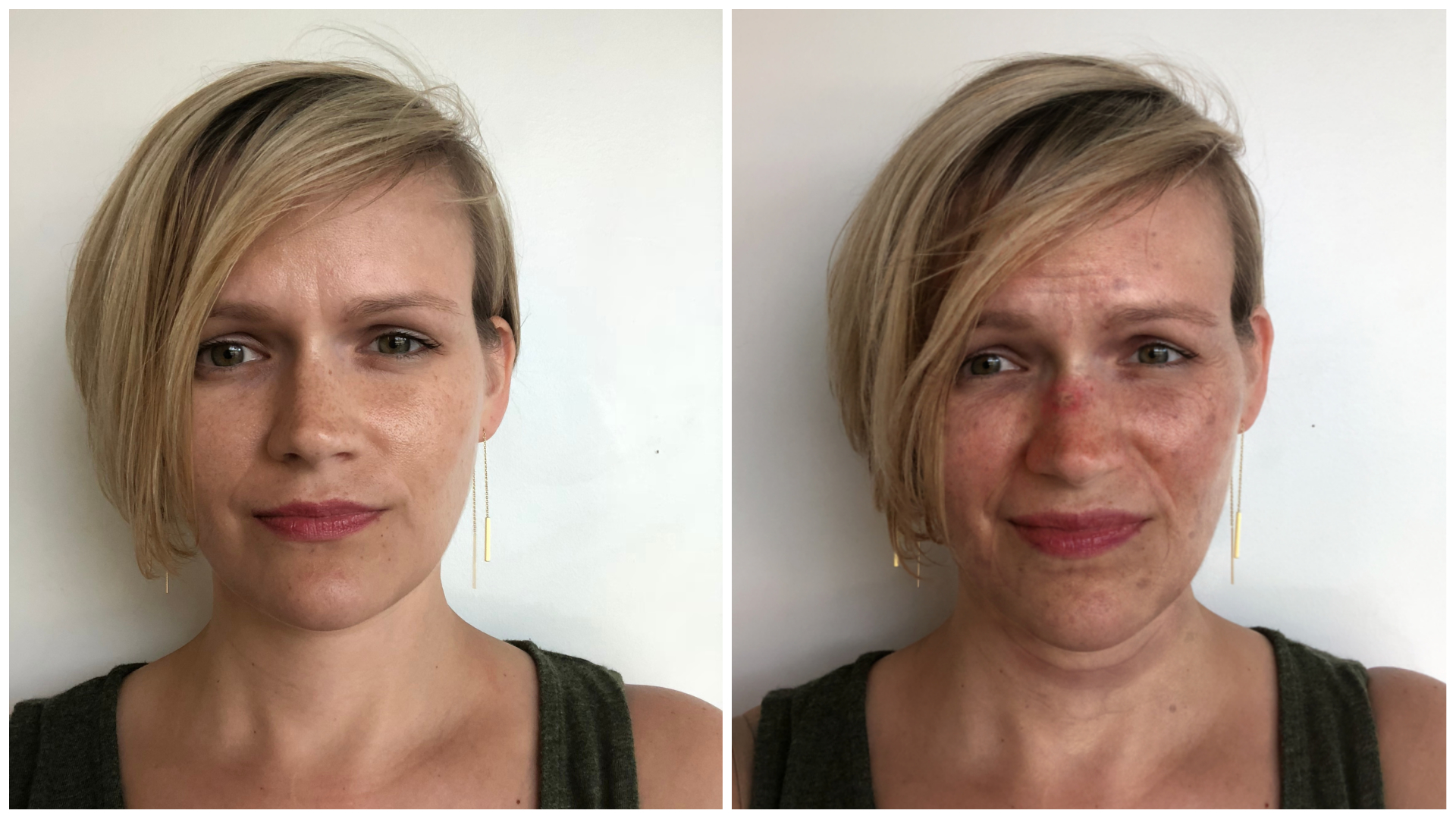Skin is the largest organ in the body. It’s the body’s outermost layer of protection from external harms such as temperature, moisture, toxic and germs. It’s no secret that the body gets older every day. Or that time will leave its imprint no matter how many yoga poses we hold. Many things cause our skin to age. Some things we cannot do anything about; others we can influence.
One thing that we cannot change is the natural aging process. It plays a key role. With time, we all get visible lines on our face. It is natural for our face to lose some of its youthful fullness. We notice our skin becoming thinner and drier. Our genes largely control when these changes occur. The medical term for this type of aging is “intrinsic aging”.
We can influence another type of aging that affects our skin. Our environment and lifestyle choices can cause our skin to age prematurely. The medical term for this type of aging is “extrinsic aging”. Not all premature aging signs are written on our face. Many starts to see more fat around the belly or at the backs of the arms. At the same time, hands become dry, sleep cycles are interrupted, fatigue sets in and it becomes harder to get started in the mornings. They could be triggered by a host of factors including smoking, eating fatty, processed foods and not getting enough fresh air.
The number #1 factor responsible for premature aging is sun exposure. Approximately 90% of the signs of aging are due to lifelong sun exposure. The ultraviolet rays from the sun penetrate the skin. There, they damage the elastic fibers that keep skin firm, allowing wrinkles to develop. Sunlight is also responsible for age spots on the hands, face, and other sun-exposed areas.
The earlier we start protecting our skin, the better it will age over time, and sometimes, seeing an expert is the best way to help us stop premature aging in its tracks. Signs our skin is aging prematurely including: dull and dry skin, brown spots, loss of volume around the face, leathery chest, fine lines and wrinkles, thinning of the lips, overly veiny hands, deep vertical lines around the mouth, and broken blood vessels.
By taking some preventive actions, we can slow the effects that this type of aging has on our skin:
- Protect your skin from the sun every day. Whether spending a day at the beach or running errands, sun protection is essential. You can protect your skin by seeking shade, covering up with clothing, and using sunscreen that is broad-spectrum, SPF 30 (or higher), and water-resistant. You should apply sunscreen every day to all skin that is not covered by clothing.
- If you smoke, stop. Smoking greatly speeds up how quickly skin ages. It causes wrinkles and a dull, sallow complexion.
- Avoid repetitive facial expressions. When you make a facial expression, you contract the underlying muscles. If you repeatedly contract the same muscles for many years, these lines become permanent. Wearing sunglasses can help reduce lines caused by squinting.
- Eat a healthy, well-balanced diet. Findings from a few studies suggest that eating plenty of fresh fruits and vegetables may help prevent damage that leads to premature skin aging. Findings from research studies also suggest that a diet containing lots of sugar or other refined carbohydrates can accelerate aging.
- Drink less alcohol. Alcohol is rough on the skin. It dehydrates the skin, and in time, damages the skin. This can make us look older.
- Exercise most days of the week. Findings from a few studies suggest that moderate exercise can improve circulation and boost the immune system. This, in turn, may give the skin a more-youthful appearance.
- Cleanse your skin gently. Scrubbing your skin clean can irritate your skin. Irritating your skin accelerates skin aging. Gentle washing helps to remove pollution, makeup, and other substances without irritating your skin.
- Wash your face twice a day and after sweating heavily. Perspiration, especially when wearing a hat or helmet, irritates the skin, so you want to wash your skin as soon as possible after sweating.
- Apply a facial moisturizer every day. Moisturizer traps water in our skin, giving it a more youthful appearance.
- Stop using skin care products that sting or burn. When your skin burns or stings, it means your skin is irritated. Irritating your skin can make it look older.
Even people who already have signs of premature skin aging can benefit from making lifestyle changes. By protecting your skin from the sun, you give it a chance to repair some of the damage. Smokers who stop often notice that their skin looks healthier.
If signs of aging skin bother you, you may want to see a dermatologist. New treatments and less-invasive procedures for smoothing wrinkles, tightening skin, and improving one’s complexion are giving many people younger-looking skin.
References:
















